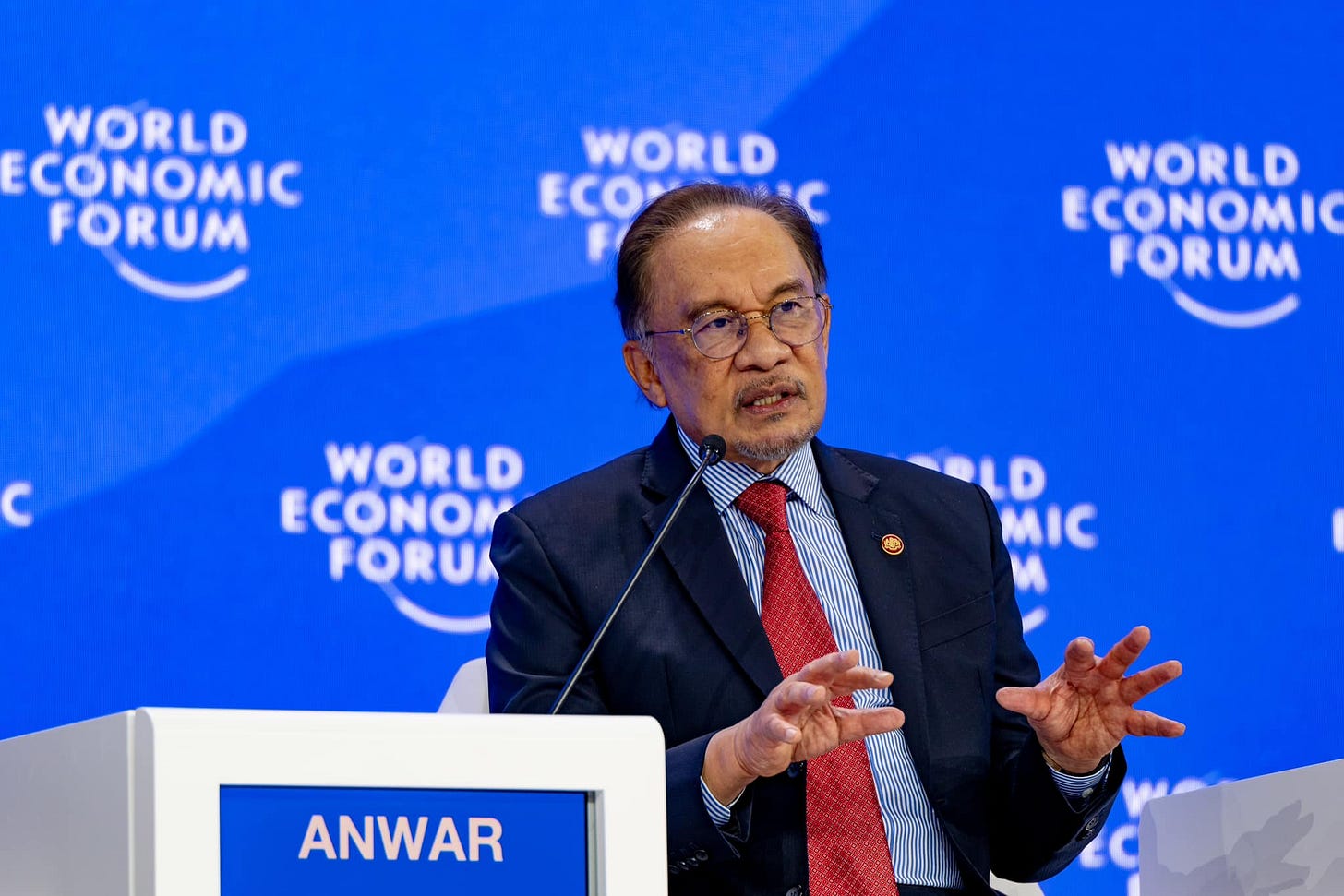Guest Editorial: Anwar’s Global Gambit: Balancing International Prestige with Domestic Realities
Samirul Ariff Othman
Anwar Ibrahim seems to believe that presenting himself as a global leader can bolster his standing at home. By embarking on high-profile trips abroad and forging relationships with foreign leaders and investors, Anwar aims to project an image of a leader who is visionary, capable, and committed to making Malaysia a key player on the global stage.
The announcements of foreign direct investments (FDIs) following these trips are designed to reinforce this narrative. However, there’s a catch: while these proclamations sound promising, they often lack follow-through and fail to address the pressing bread-and-butter issues at home. Malaysians, facing economic uncertainty, inflation, and a widening income gap, are skeptical. They want to see tangible results, not lofty promises or diplomatic photo-ops.
The effectiveness of this strategy is debatable. Sure, global engagements can bring long-term benefits, such as stronger diplomatic ties and potential investments, but they do little to address the immediate frustrations of voters who feel the government is out of touch.
When domestic challenges like inflation, corruption, and social divides dominate public discourse, overseas success stories can feel like tone-deaf distractions. FDI announcements, no matter how grand, mean little without clear follow-ups on job creation and economic transformation. Moreover, the reliance on race and religion in local politics undermines the very image of progressive leadership that Anwar seeks to cultivate abroad. History tells us that leaders who neglect domestic realities in favor of global pursuits often pay a heavy political price. In Malaysia, where voters prioritize economic stability and governance, the risks of this strategy are magnified.
Comparing Anwar to Mahathir Mohamad on the global stage is illuminating. Mahathir didn’t just show up for the global spotlight; he shaped it. During the 1997-98 Asian Financial Crisis, Mahathir defied the International Monetary Fund (IMF), implemented unorthodox policies, and emerged as a hero of the Global South.
His Vision 2020 plan was not just a slogan but a roadmap that married international ambition with domestic progress. Anwar, on the other hand, leans heavily on his personal story and intellectual credentials, which, while compelling, lack the bold policy actions that defined Mahathir’s legacy.
Mahathir’s global influence was rooted in decisive leadership and a willingness to challenge global norms. Anwar’s approach, more diplomatic and narrative-driven, risks being perceived as soft in comparison.
Ultimately, Anwar’s strategy of leveraging international engagements to strengthen his domestic standing faces inherent limitations. Malaysians want leadership that connects global ambitions with local realities—a balance Mahathir mastered but Anwar struggles to achieve.
Unless Anwar can translate his global image into tangible domestic progress, his frequent trips abroad may deepen the perception that he is out of touch with the concerns of his own people. And in a democracy like Malaysia, where the political ground is constantly shifting, that is a dangerous perception to leave unaddressed.
——————————————————————
Economist Samirul Ariff Othman is an international relations analyst. He completed his graduate studies at Macquarie University in Sydney, Australia. The views in this OpEd piece are entirely his own.
Subscribe Below:



